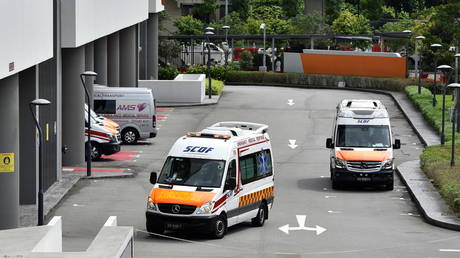
The government of Singapore will no longer cover the healthcare costs of Covid-19 patients if they choose to remain unvaccinated, the country’s health ministry announced, in an apparent bid to encourage immunizations.
“Currently, unvaccinated persons make up a sizable majority of those who require intensive inpatient care, and disproportionately contribute to the strain on our healthcare resources,” the ministry said in a statement on Monday, adding that the same group makes up “the bulk of severe and ICU cases” and imposes “a strain on our healthcare system.”
While the government said its 70%-full ICU capacity is still “manageable” and that the vast majority of infections have been “mild” or asymptomatic as of late, it noted the pandemic is still “stretching our healthcare manpower” and a resurgence in cases could “overwhelm” the hospital system.
Those who have been partially vaccinated will have until December 31 to allow them to complete their immunizations on the government’s dime, but beyond that date those individuals will be charged for any Covid-related treatment.
Other than citizens who tested positive soon after returning home from overseas, all Singaporeans were previously eligible to receive free coronavirus vaccines and therapeutics, which the government said was intended to “avoid financial considerations adding to public uncertainty and concern when Covid-19 was an emergent and unfamiliar disease.”
People who are unable to receive the inoculations, including children under the age of 12 and others with certain medical conditions, will still be offered free care. The ministry added that “patients who are unvaccinated by choice may still tap on regular healthcare financing arrangements to pay for their bills where applicable.”
Singapore has recorded more than 3,000 new daily infections on average for the last three weeks, the ministry said. According to data tracked by Johns Hopkins University, it has seen just over 220,000 cases in total since the pandemic kicked off in late 2019, as well as some 511 fatalities.
Think your friends would be interested? Share this story!




